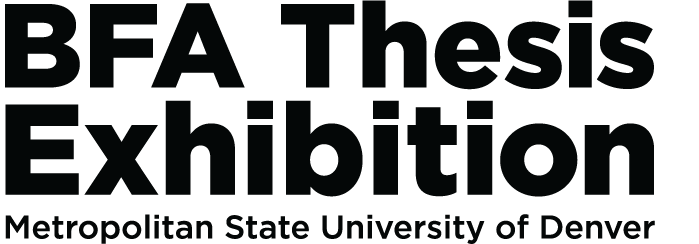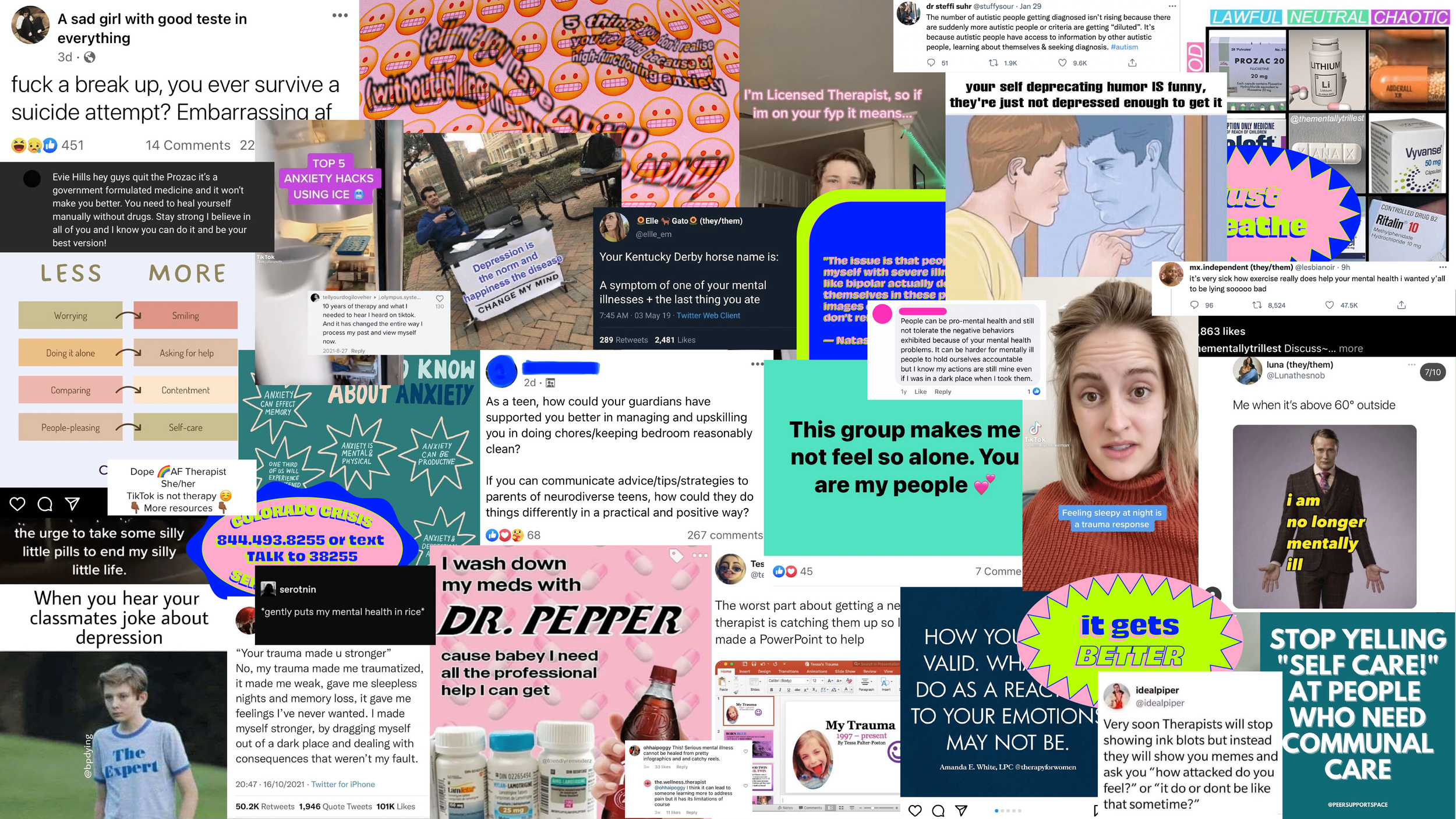
Noelle Betkowski
Support and Subcultures: Mental Health on Social Media
The rise of social media has made information and discourse on any subject more accessible, including the subject of mental health [1]. While the prevalence of mental health issues in the US has significantly increased over the past decade, [2] it’s now easier than ever for social media users to educate themselves, find supportive communities, access helpful resources, and contribute to destigmatizing these issues. However, they are just as likely to encounter detrimental misinformation, enabling of unhealthy behaviors, and even glorification of some disorders.
Support and Subcultures: Mental Health on Social Media uses postmodern approaches and themes of recontextualization, appropriation, intertextuality, identity, and irony[3] to display the overwhelming effect that mental health content can have on social media users. A trendy, youthful digital aesthetic embodies the online space, layering examples of helpful and harmful content together to the point of blurring the line between the two and saturating the viewer with information
Support and Subcultures examines both the constructive and destructive effects of mental health-related content, prompting viewers to distinguish between the positive, negative, and neutral examples featured, with the understanding that some examples may be clear and others more nuanced and subjective. The intention is to bring viewers to reflect on their own ideas of mental health and think critically about information found and shared online, for themselves or those in their lives susceptible to this content.
Due to the nature of the subject, please note that this installation highlights potentially triggering themes, including but not limited to mental illness, eating disorders, addiction, self-harm, and suicide.
[1] Wood, Julie. “Managing Mental Health Misinformation on Social Media.” Penn Medicine News. Penn Medicine, October 28, 2021. https://www.pennmedicine.org/news/news-blog/2021/october/managing-mental-health-misinformation-on-social-media.
[2] American Psychological Association. “Mental Health Issues Increased Significantly in Young Adults over Last Decade.” ScienceDaily. March 15, 2019. https://www.sciencedaily.com/releases/2019/03/190315110908.htm.3Barrett, Terry. “Approaches to Postmodern Art-Making.” FATE in Review28 (2006-2007): 2–15
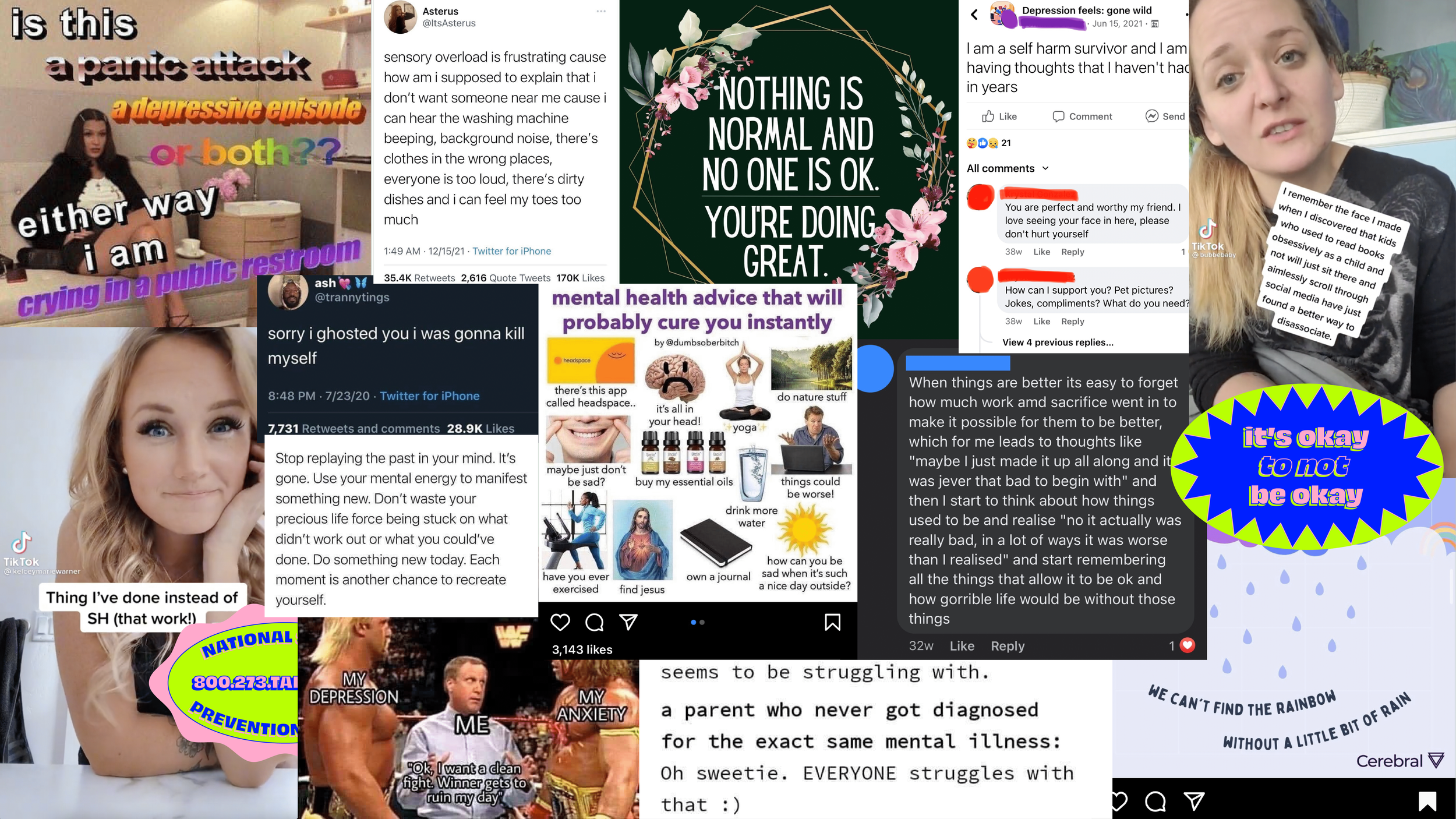
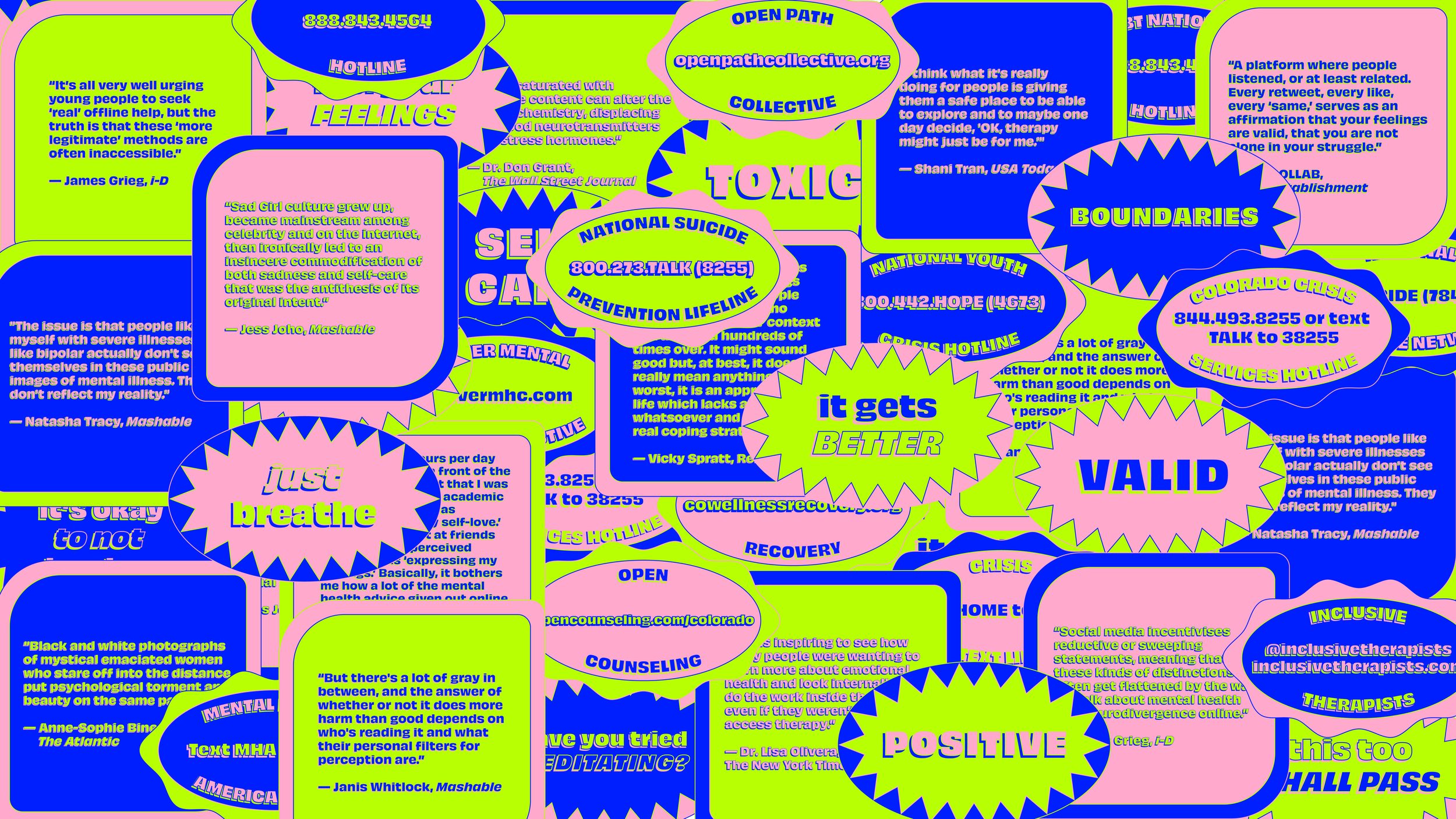
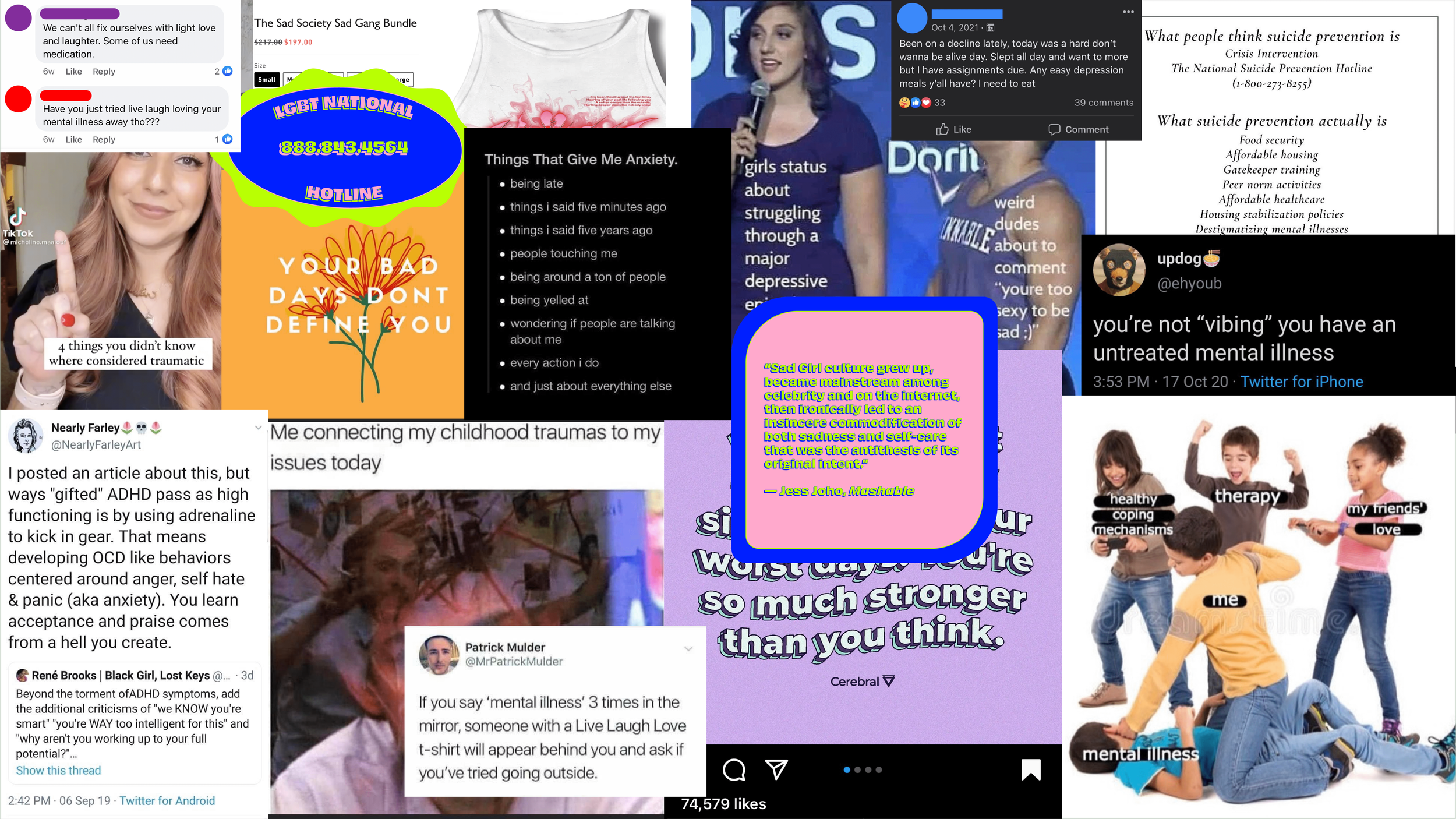
Contact me
noellebetkowski@gmail.com
(303) 968-7947
IG: noellebetkdesign
